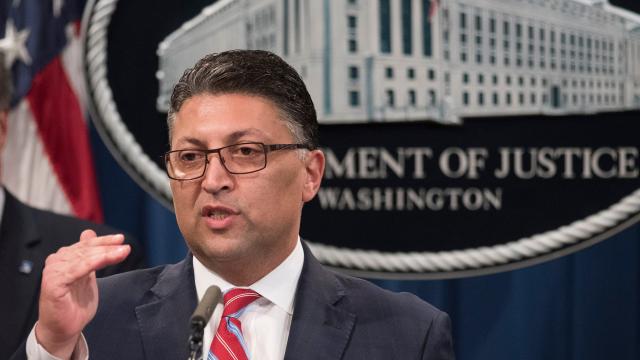The United States’ Department of Justice (DOJ) is working to rescind the Paramount consent decrees, a set of 1940s legal rules limiting studios’ power over theatres that helped usher in the end of the notorious old Hollywood system, the Wall Street Journal reported on Monday.
Per the Journal, DOJ antitrust division chief Makan Delrahim told a meeting of the American Bar Association in Washington, DC that with “new streaming businesses and new business models, it is our hope that the termination of the Paramount decrees clears the way for consumer-friendly innovation.”
Revoking the decrees, originally imposed after the U.S. government won a landmark Supreme Court decision in United States v. Paramount Pictures in 1948, could have far-ranging consequences in the movie and streaming businesses. The ruling resulted in studios largely being prohibited from owning the theatres that show their films, as well as barred “block booking,” the practice of forcing theatres to show other films from the studios’ lineups when the theatres only wanted to show one particular movie.
According to the Hollywood Reporter, Delrahim told the ABA the rollback will include a two-year sunset period on block booking and circuit dealing, a practice in which studios strike just one contract with all the theatres in a given circuit. Delrahim justified the move by calling the consent decrees outdated and alluding to streaming, which allows studios to bypass theatres and sell their movies directly to the public, as an example of innovation that serves the public.
“We have determined that the decrees, as they are, no longer serve the public interest, because the horizontal conspiracy”the original violation animating the decrees”has been stopped,” Delrahim said, claiming the consent decrees “… have already remedied the effects of the violation, ridding the industry of “˜all taint’ of the horizontal conspiracy and undoing what the conspiracy had achieved.”
He added that DOJ antitrust officials “will review the vertical practices initially prohibited by the Paramount decrees using the rule of reason. If credible evidence shows a practice harms consumer welfare, antitrust enforcers remain ready to act.”
According to the Journal, the DOJ will have to file in Manhattan federal court to terminate the orders, which is “expected in the coming days.”
The rollback was opposed by operators of smaller studios and theatres, in the latter case represented by the National Association of Theatre Owners (NATO). The smaller players argued that in an era centered on blockbuster releases (the Journal cited Box Office Mojo data showing 27 per cent of box-office grosses so far this year came from just five films) studios have massive leverage to bring back block booking.
The rollback would also happen at a time when media consolidation is empowering giants like Disney (and its Disney+ streaming service) to keep consumers trapped in walled gardens. In that sense, studios are already moving to get back into the exhibitor game, and the revocation of the Paramount decrees could further strengthen their position. It would also speed up the consolidation of the theatre business, with the Journal noting that around half of the 40,000 theatres in the U.S. already belong to AMC, Regal, and Cinemark.
“Basically the studios financed the movies, produced them themselves at their own companies and then they also owned some movie theatres,” Hollywood historian and You Must Remember This podcast host Karina Longworth told Gizmodo in May 2019. This system allowed the studios to award sweetheart distribution deals to their own competitors while muscling out competition, a form of vertical integration that the government eventually designated an illegal monopoly. Longworth told Gizmodo that this opened up the floodgates to indie cinema: “There was, for all intents and purposes, no such thing as independent film that got any kind of distribution until the 1950s.”
“If exhibitors were forced to book out the vast majority of their screens on major studio films for most of the year, this would leave little to no room for important films from smaller studios,” NATO wrote in comments to the DOJ.
